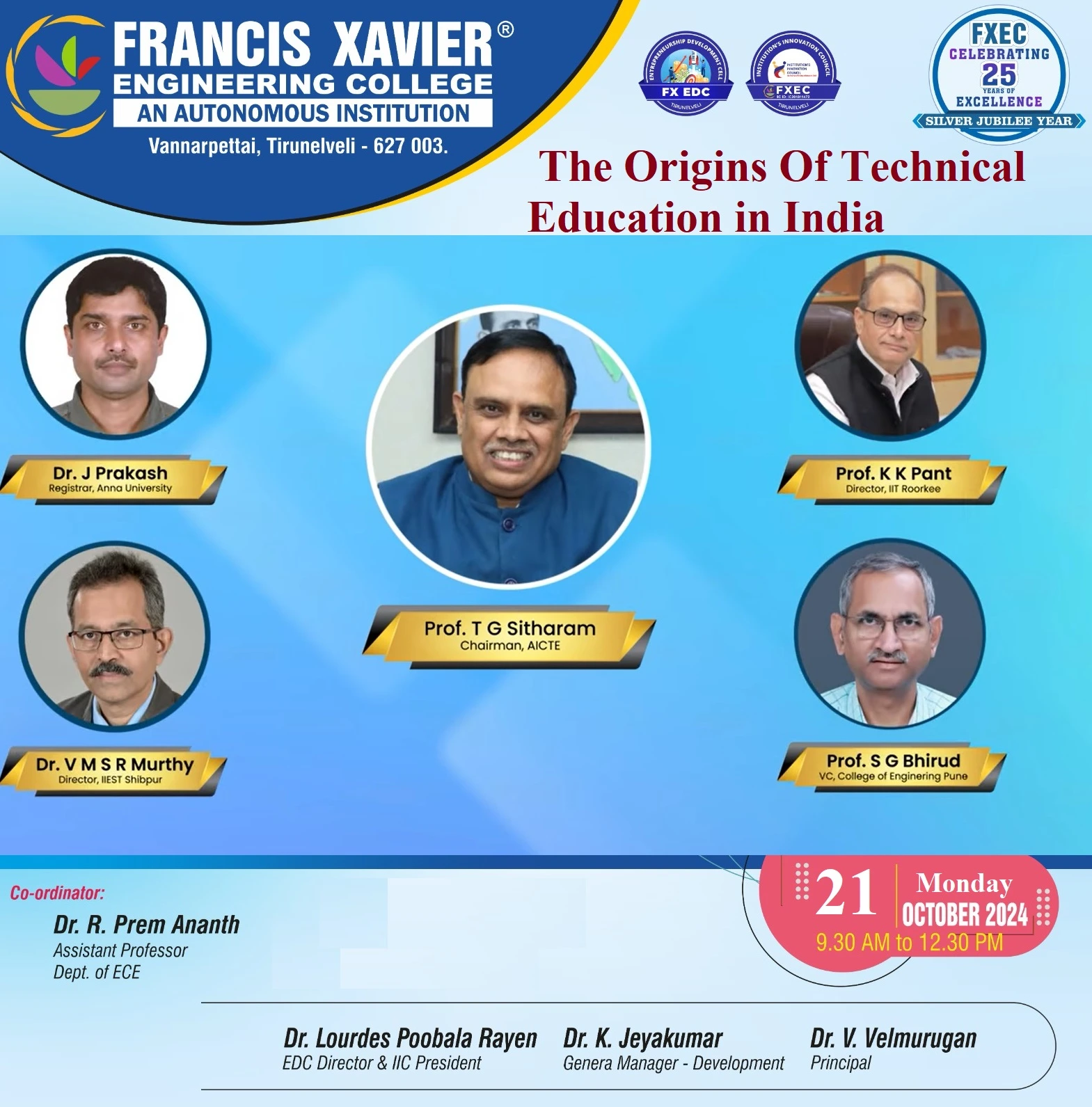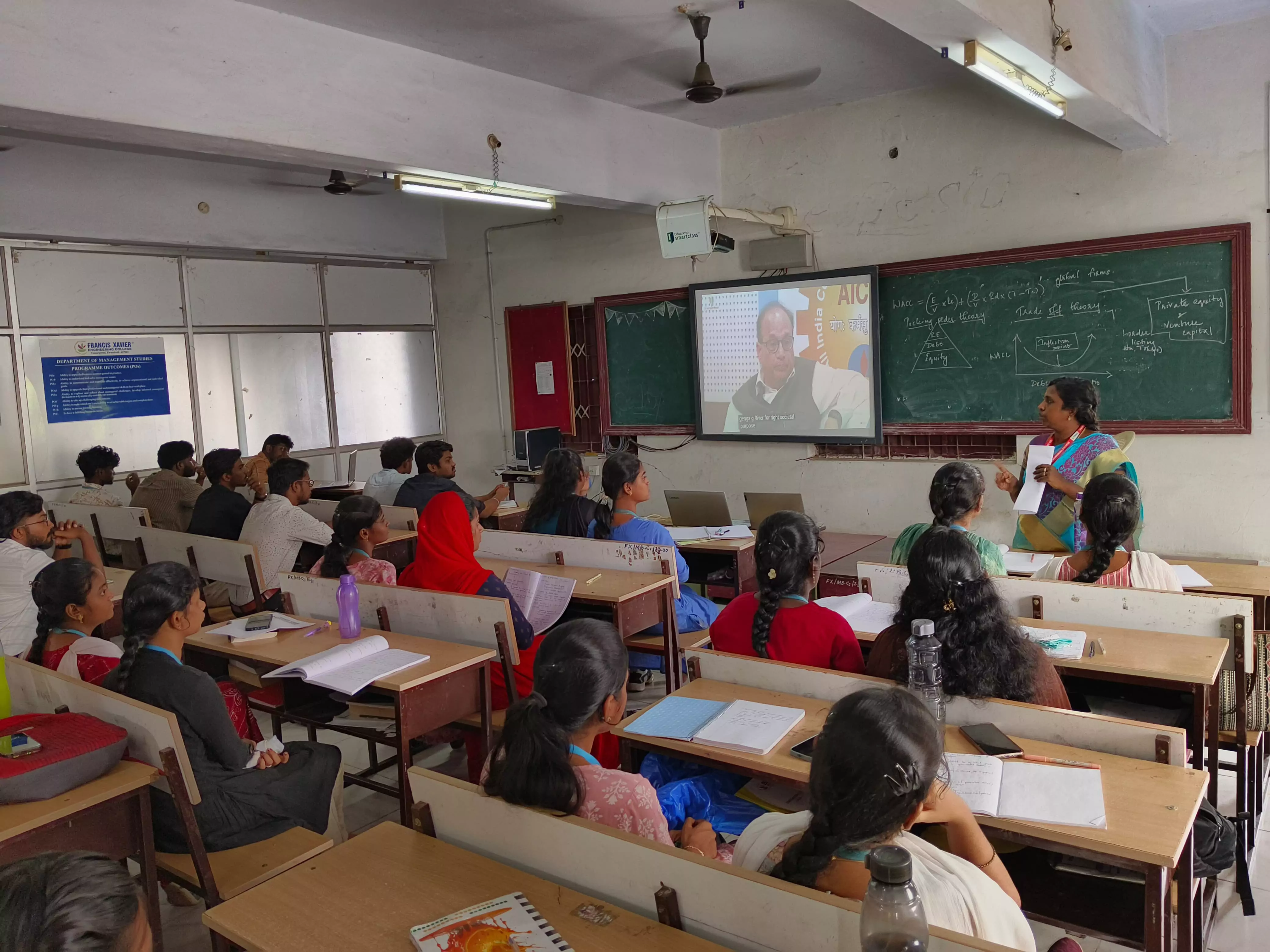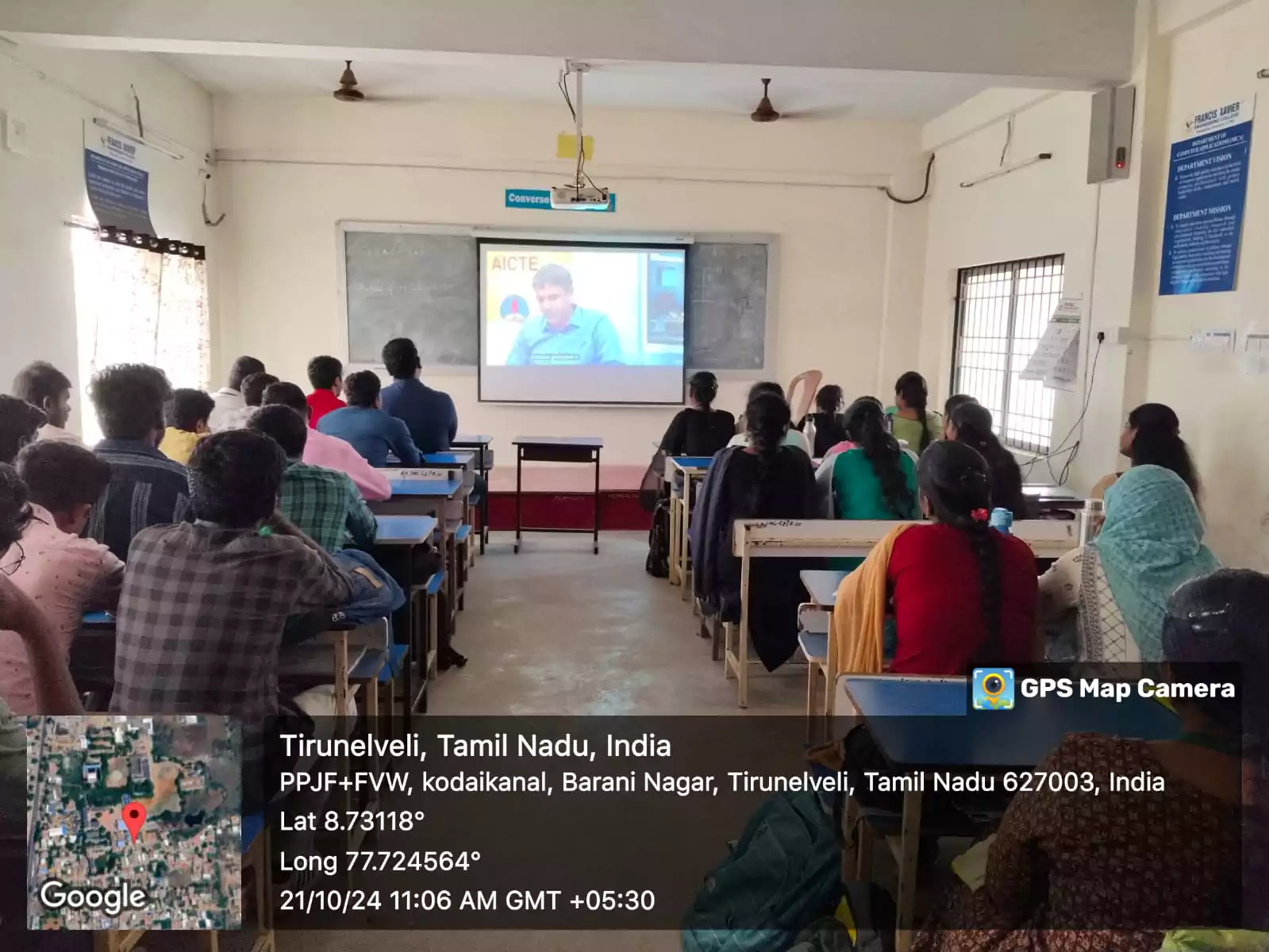
On 21.10.2024 a session on the title “Leaders from Historical Institutions: Discussion on the Origin of Technical Education in India” was organized by the MoE Innovation Cell, New Delhi. The guest speakers were Prof. T G Sitharam, Chaiman AICTE, Dr. J Prakash registrar of Anna University, College of Engineering, Guindy, Prof Kamal Kishore Pant, Director, IIT Roorkee, Prof. S.G. Bhurid, VC, COEP and Dr. V. M. S. R. Murthy, Director, IIEST Shibpur. 187 students and 24 faculties participated in the program. This event was coordinated by Dr. R Prem Ananth, IIC Convener, IIC Innovation Ambassador for "Design thinking & Innovations", Assistant professor, Francis Xavier Engineering College.
The guest speakers were the visionary leaders from renowned historical institutions to highlight the rich heritage of technical education in India. From the founding of early engineering colleges to the creation of industrial research centers, our distinguished panel illuminated the key milestones that have contributed to India’s emergence as a global innovation hub and the remarkable stories of perseverance, challenges, and triumphs that have shaped the modern technical education landscape of India.
Discussion Points:

